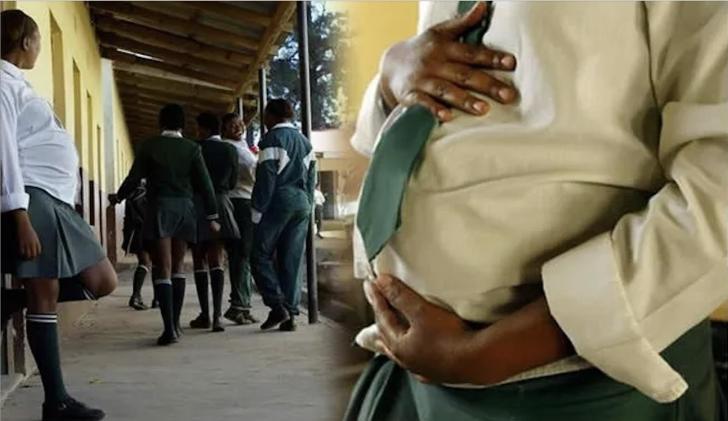News / National
High pregnancy rates among HIV+ teens in Zimbabwe
18 Jul 2025 at 19:57hrs |
0 Views

A groundbreaking study conducted in Zimbabwe and Zambia has revealed alarmingly high pregnancy rates among adolescents born with HIV, highlighting urgent gaps in healthcare systems and social support for this vulnerable population. The findings, published in the International Journal of STD & AIDS, paint a stark picture of the complex challenges facing young people growing up with HIV in Southern Africa.
The research, which involved 842 adolescents aged 11 to 19, found that pregnancy incidence among girls aged 15 and older reached 6.8 per 100 person-years - a rate significantly higher than regional averages. The study offers the most comprehensive data to date on pregnancy outcomes among adolescents with perinatally acquired HIV in the region.
Compounding Vulnerabilities: Health, Stigma, and Education
While medical advances have dramatically improved the prevention of mother-to-child HIV transmission - with 92% of babies born to these young mothers testing HIV-negative - the broader findings expose systemic failures in meeting the wider needs of these adolescents.
The study revealed that only 19% of pregnant teens successfully returned to school after giving birth, a statistic that underscores the long-term socio-economic consequences of early pregnancy among this group. Access to contraception was found to be another critical gap: just 30% of young mothers received immediate postpartum family planning, though this figure improved to 70% after several weeks.
Three Key Failures Identified
Researchers identified three major failures contributing to these outcomes:
Fragmented sexual and reproductive health services within pediatric HIV clinics, leaving adolescents without adequate support or information.
Widespread fear of disclosing HIV status to partners, which complicates discussions around contraception and safe sexual practices.
Persistent stigma surrounding adolescent pregnancy, further isolating young mothers and limiting their access to education and support networks.
"These findings reflect a pivotal moment in the HIV care landscape," said researchers from Zimbabwe's Health Research Unit and Zambia's University Teaching Hospitals. "While we have made significant strides in preventing HIV transmission to infants, we must now turn our attention to supporting adolescents with HIV as they navigate the transition to adulthood."
A Call to Action for Integrated Care
The study's authors are urging immediate reforms to integrate reproductive health services into HIV care programs and strengthen protections for pregnant students to ensure they are not excluded from education.
"This is no longer simply a health issue; it is a societal issue requiring coordinated action from healthcare providers, educators, and policymakers," one of the lead researchers noted.
Implications for the Region
As more children born with HIV survive into adolescence thanks to medical advances, experts warn that health systems must adapt rapidly to address the broader challenges these young people face. The study highlights that failing to provide comprehensive care - including sexual health education, mental health support, and educational opportunities - risks undermining decades of progress in the fight against HIV.
The findings serve as both a warning and a roadmap for countries across the region: while medical science has curbed the epidemic's worst outcomes, the next frontier lies in delivering holistic, compassionate care that equips adolescents with HIV to lead healthy, empowered lives.
The research, which involved 842 adolescents aged 11 to 19, found that pregnancy incidence among girls aged 15 and older reached 6.8 per 100 person-years - a rate significantly higher than regional averages. The study offers the most comprehensive data to date on pregnancy outcomes among adolescents with perinatally acquired HIV in the region.
Compounding Vulnerabilities: Health, Stigma, and Education
While medical advances have dramatically improved the prevention of mother-to-child HIV transmission - with 92% of babies born to these young mothers testing HIV-negative - the broader findings expose systemic failures in meeting the wider needs of these adolescents.
The study revealed that only 19% of pregnant teens successfully returned to school after giving birth, a statistic that underscores the long-term socio-economic consequences of early pregnancy among this group. Access to contraception was found to be another critical gap: just 30% of young mothers received immediate postpartum family planning, though this figure improved to 70% after several weeks.
Three Key Failures Identified
Researchers identified three major failures contributing to these outcomes:
Fragmented sexual and reproductive health services within pediatric HIV clinics, leaving adolescents without adequate support or information.
Widespread fear of disclosing HIV status to partners, which complicates discussions around contraception and safe sexual practices.
Persistent stigma surrounding adolescent pregnancy, further isolating young mothers and limiting their access to education and support networks.
"These findings reflect a pivotal moment in the HIV care landscape," said researchers from Zimbabwe's Health Research Unit and Zambia's University Teaching Hospitals. "While we have made significant strides in preventing HIV transmission to infants, we must now turn our attention to supporting adolescents with HIV as they navigate the transition to adulthood."
A Call to Action for Integrated Care
The study's authors are urging immediate reforms to integrate reproductive health services into HIV care programs and strengthen protections for pregnant students to ensure they are not excluded from education.
"This is no longer simply a health issue; it is a societal issue requiring coordinated action from healthcare providers, educators, and policymakers," one of the lead researchers noted.
Implications for the Region
As more children born with HIV survive into adolescence thanks to medical advances, experts warn that health systems must adapt rapidly to address the broader challenges these young people face. The study highlights that failing to provide comprehensive care - including sexual health education, mental health support, and educational opportunities - risks undermining decades of progress in the fight against HIV.
The findings serve as both a warning and a roadmap for countries across the region: while medical science has curbed the epidemic's worst outcomes, the next frontier lies in delivering holistic, compassionate care that equips adolescents with HIV to lead healthy, empowered lives.
Source - Health Times
Join the discussion
Loading comments…


































